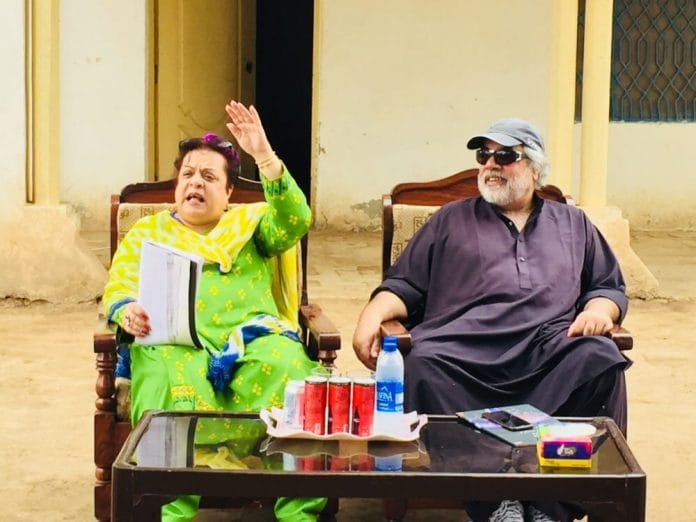Here’s what’s happening across the border: Pakistan government can now track overseas Pakistani account and Sharif’s mother defends her son.
Pakistan minister slams Dutch government over far-right politicians’ Islamic cartoon contest
The newly-appointed Federal Minister for Human Rights, Shireen Mazari, Monday slammed the Netherlands government for allowing the far-right Dutch politician Geert Wilders to organise a Prophet Mohammed cartoon contest, reported The News.
In a press statement, Mazari said the actions of Wilders, who heads the Dutch Freedom Party, was a clear violation of human rights of Muslims in Europe as well as a violation of the European Convention for the Protection of Human Rights and Fundamental Freedom.
Wilders has a reputation of making anti-Islamic statements. According to DutchNews.nl, Wilders claims to have around 200 entries for the contest. The report says he will choose the winner at an event in a secure part of the Dutch parliamentary complex.
Mazari’s remarks, however, have drawn accusations of hypocrisy, with many pointing out that Pakistan still has a blasphemy law that can attract the death penalty.
Farahnaz Ispahani, a Pakistani-American writer tweeted, pointing out that Mazari was yet to speak on the blasphemy law.
#Pakistan's new Human Rights Minister Shireen Mazari condemns a blasphemous cartoon competition in the Netherlands but is silent about #Pakistan's #Blasphemy Law which puts Pakistani Ahmadis, Christians, Hindus, Sikhs & many others at risk every day. https://t.co/fu2UZHEwiR
— Farahnaz Ispahani (@fispahani) August 21, 2018
Offshore accounts will now be within Pak government’s reach
From September 1, the Federal Board of Revenue (FBR), a government agency that investigates tax fraud and money laundering, will officially be able to access information on the offshore accounts of Pakistani residents, reported Dawn.
The report says that the agency will have access to accounts in countries that are signatories of the Organisation for Economic Cooperation and Development (OECD). Pakistan is a member of the OECD.
According to the report, amendments have been made to the Protection of Economic Reform Act, 1992, discarding the earlier rule where the FBR had to limit its probe of foreign assets and income to five years.
Amendments have also been made to the Income Tax Ordinance, 2001, which now gives the FBR the authority to investigate foreign remittance on sums exceeding Rs 10 million.
Will end political censorship of state-run media, says I&B minister
The newly appointed information and broadcasting minister Fawad Chaudhry Hussain Tuesday tweeted that the Pakistan Tehreek-i-Insaf-led government has decided to “end political censorship” on all state-run media outlets, reported Dawn.
Hussain added that in the next three months the ministry of information would undergo “visible and drastic changes”.
His pledge, however, was ridiculed by Omar R. Quraishi, the media consultant of the opposition Pakistan People’s Party (PPP), who pointed that the PTI had boycotted Geo TV for what it deemed was negative coverage by the channel.
Commendable – if this is actually achieved
(P.S.: Wasn't it the PTI which boycotted Geo for several months for what it deemed was unfavourable coverage by the channel – or it's hostility to Dawn because it was critical unlike the rest of the media which usually fell in line) pic.twitter.com/aismIF9tNc
— omar r quraishi (@omar_quraishi) August 21, 2018
Sharif’s mother says son did not rob the nation
Former Prime Minister Nawaz Sharif’s mother Shamim Begum Tuesday said her son never indulged in corruption nor did he steal the country’s wealth, reported Dawn.
Speaking to a foreign radio channel, Begum said her son is facing false allegations.
She added that Sharif’s father, the late industrialist Mian Muhammad Sharif, would never let his son rely on the state for his daily needs.
Currently, Nawaz Sharif along with his daughter Maryam Nawaz have been jailed in the London Avenfield luxury flats case.
The minority women taking on the political elite
The recent Pakistan elections have been described as a landmark poll for the country’s minorities but problems continue to persist, reports The Telegraph.
The report profiles Sunita Parmar Menghwar, a minority candidate, who contested from Tharparkar, but managed only 352 votes. “Thar has always been ruled by the feudal class, but they have given us nothing. They only visit us during election time to collect votes. They give money in exchange for votes, and people accept it out of greed. And then they leave…Our people don’t realise the importance of their vote – they sell themselves,” it quotes her as saying.
Menghwar, the report says, is part of a growing number of women from minority communities standing for elections. It quotes Seema Maheshwari, a human rights activist in Sindh, who says that 10 such women stood in general seats from the rural areas of the Sindh province and Karachi.
Contributors: Aastha Singh, Alind Chauhan, Manisha Mondal, Priyamvada Grover and Rupanwita Bhattacharjee







Pakistan is not a member of OECD. Get a better fact checker.